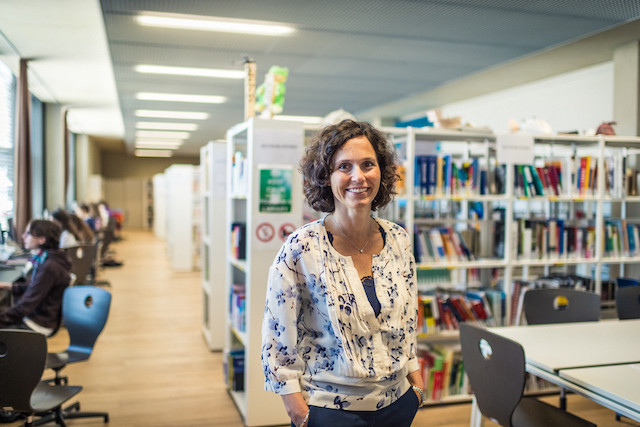If a parent notices a child has lost motivation to do homework or cannot understand concepts in the class, Shruti Tulsian, founder of Vedic Maths, believes it’s time to seek help. “A lot of children struggle with maths and the interconnection between various maths topics. Children who struggle at 10 years old are likely to drop advanced level maths subjects early at secondary school,” she says.
Vedic Maths gives children simple techniques to solve complex problems without the use of calculators. “It’s particularly useful for kids preparing for entrance exams, where speed and accuracy are essential. I help students of all ages, even adults, to believe in themselves, strengthening and building on their basic understanding of maths,” explains Tulsian.
Charlotte Henriksen, support coordinator at the European School Luxembourg II (pictured), believes that it can be positive to have high expectations of your children, but parents should also be realistic to avoid having a negative impact on their child’s self-esteem.
Student anxiety is on an upward trajectory, not just from parental pressure but from common expectations on social media about how perfect life should be. It’s one of the reasons that the school has been running a scheme called Brainwise to help pre-teens and teenagers “learn how to learn”.
Students learn what motivates them personally and gain a greater understanding of how to focus attention, store and recall information--including breathing techniques or how to chunk information for better recall. During the programme, they also develop a personal learning journey to help them with exam readiness.
“By understanding and applying the fundamentals of brain science, I believe teenagers can be empowered to become agents of their own learning,” says Sophie Le Dorner-Debout, who created and runs the programme. “Emotions play an important part in preventing motivation, attention and the ability to memorise. We all learn naturally but we might not learn effectively.”
For some parents, the move to a more multilingual environment can mean language support is needed from an early age. “Teaching languages is not just about grammar and pronunciation, but about motivating and encouraging a child, making learning fun and adapting to the learning style and personality of the child,” says Clara Moraru, CEO and founder of Languages.lu, which provides individual tutoring as well as language camps for children. “The camps can help with language practise, oral comprehension, confidence and motivation. Kids also develop social skills and learn how to interact in another language.”
If you’ve read this and are about to call in some heavy duty tutor support, Henriksen has a word of caution: “School marks don’t represent a person, but a level of performance in a subject. Failing a test does not make a child a failure. Being honest, being a good friend or being reliable is just as important as a row of good marks.”
This article was first published in the June 2018 edition of Delano Magazine.
